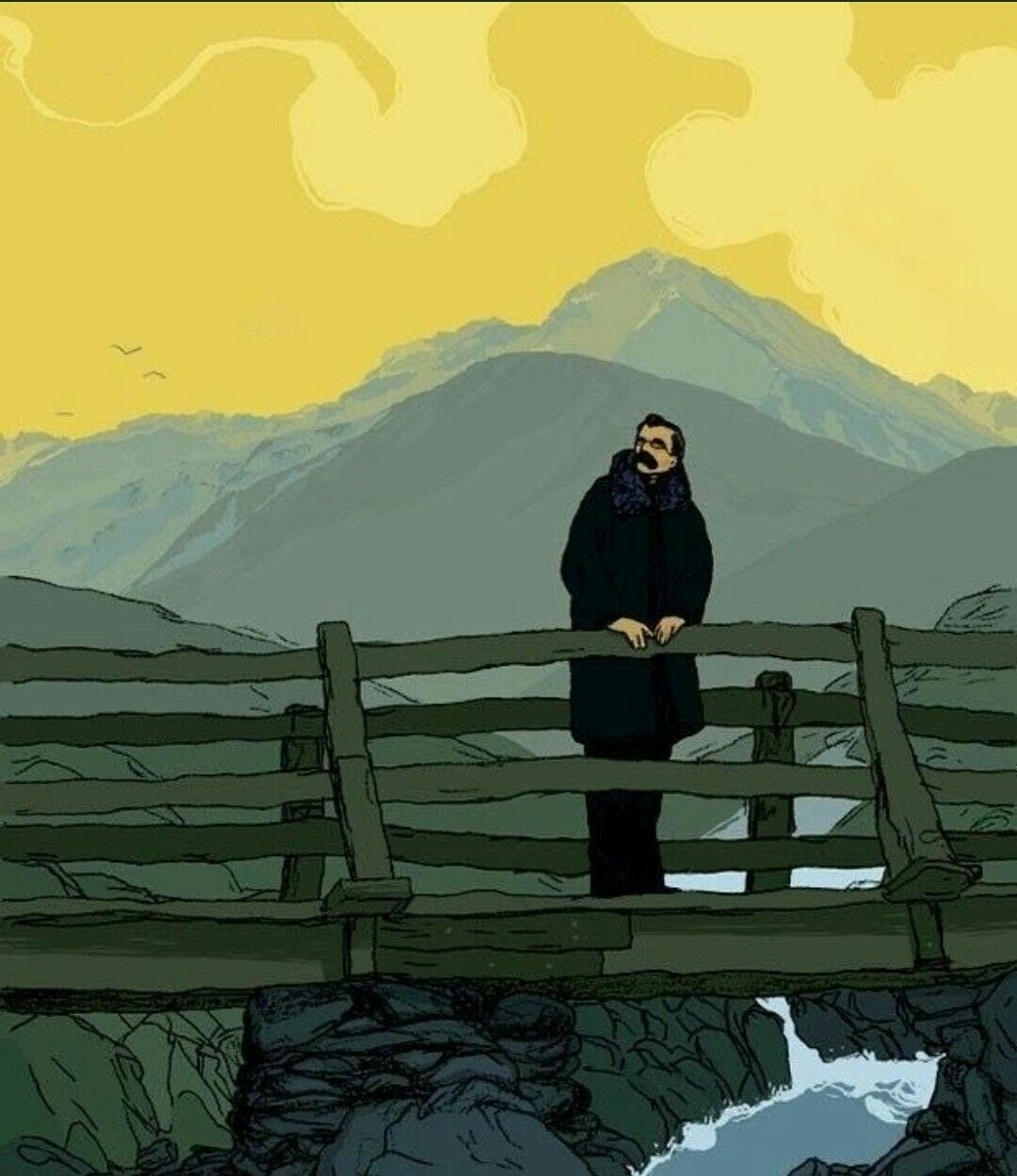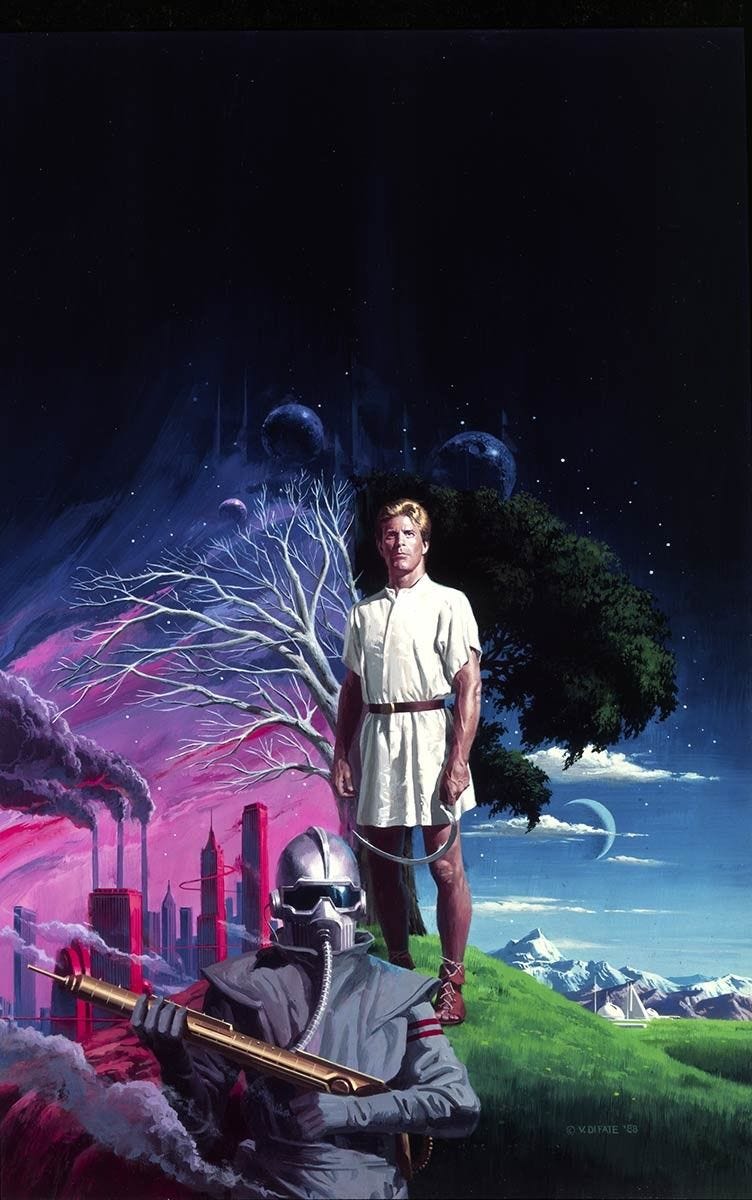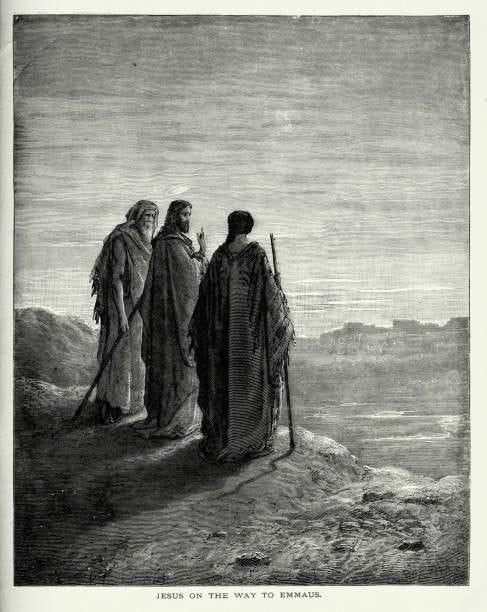Frederich Nietzche wrote:
"Man is a rope stretched between the animal and the Superman — a rope over an abyss."
This is Nietzsche’s conception of the drive, the fundamental force of our soul. Our force of momentum.
The pulling toward exploration, to lay new roads, to move through the seasons of the Earth. And the risk of not doing so, idle darkness, a clamor of voices encircling you, a slow physical and mental decay into nothing.
This drive is central to his complex philosophy. It rejects the notion of an objective, universal morality, replacing it with a morality dependent on the will to understand what compels us to act in the world. These impulses to act — our drives — are the real 'masters' of our behavior. They are the underlying impulses that shape our motivations, and values, operating at a level beneath our conscious understanding.
If we refuse to acknowledge our drive, we become susceptible to being pulled by the magnetic forces of others. We risk losing our own balance and becoming another animal in the darkness. But when we see what drives us — when we really see it, listen to it — we can dance over the abyss below us and step into the new land on the other side.
This is the difference between our flesh and that of an animal, if we aren’t exerting our drive and channeling it into the world what are we doing with our gift of an individual spirit?
Old Gods, New Worlds
The moral and metaphysical frameworks that have bound us under forms of mutual cooperation for centuries have become vague and corrupted in the Western World. Religions become fractured and frail, education has become governed by the fleeting condescending discourses of pale and weak “intellectuals”, who know less of actual people than your average Midwest plumber. You see it all around you. People are more anxious, depressed, and hopeless than they have ever been, despite the privileges of infrastructure and a bounty of food few humans in history could comprehend. I believe, that this is because we lean on authority, rather than on our own drive. We look outward, rather than inward, and in turn, know nothing about what motivates our actions.
This, according to Nietzsche has always been a problem with institutions; they don’t exist for individuals to channel and optimize their drives, rather, they are vehicles to structure a group morality. That isn’t to say that religion, education, etc, are inherently destructive. But if you’re unsure about what compels you forward (as most are), you will become a slave to a petty and ineffectual morality that does the job for you, just as Nietzsche described.
Another reason we find ourselves in this current malaise is the overwhelming difference between the modern world and the world in which we emerged and lived for the vast majority of our history.
The Enlightenment and the emergence of scientific rationalism have taken us out of the conceptual, metaphysical, and symbolic understanding of the world and into something entirely new.
The stars, the sun, the moon, and the creatures we share this Earth with are examined and understood through a frame of objective science. They are no longer totems, Gods, and powerful symbolic entities as they once were.
For the hundreds of billions of dead souls in the ground below us, our conception of reality would be totally alien to them.
Our drive in this archaic world was connected to the spirits that we saw around us. We acted and moved in accordance with them and toward them, questioning and understanding the world through the spirit that whispered in our ears. To early humans, the mind, the seasons, the vastness of space, the community, and the Earth around us contained spirits that our drives sought to understand and interpret. It allowed us to get to where we are now, but the exponential force of technology hasn’t allowed us to catch up.
In the modern world, where everything is explainable, we are forced to balance our historical programming with the fact that few things are mysterious or magical to us.
And for that reason, it’s easier to exist as just another part of it, rather than move through our own drives into something new within us.
Channeling Your Drive
When we allow our drive to be our master, rather than the artificial and temporary ideologies of the present, we can find our morality and ethics embodied within us. We can embody both the primitive, acting, state of man that moved through a mysterious world and an archetype of man imbued with a modern wisdom and sensibility to his true nature. We can see the teachings of religious prophets as an archetype of a properly channeled drive to do good, and we can see the murderous tyrants of history as manifestations of a drive that was misguided or uncontrolled.
These hidden impulses become tools to govern our behavior and engage us in a constant process of self-overcoming to free ourselves from the "spirit of gravity", affirming our drive's life-giving, creative power.
Nietzsche writes in "Thus Spoke Zarathustra":
"I teach you the overman. Man is something that shall be overcome. What have you done to overcome him?... All beings so far have created something beyond themselves; and do you want to be the ebb of this great flood and even go back to the beasts rather than overcome man? What is the ape to man? A laughingstock or a painful embarrassment. And man shall be just that for the overman: a laughingstock or a painful embarrassment…"
This is a call for continual self-overcoming and self-creation, not a directive to give in to all of our impulses without thought or consideration. While most philosophers construct an ethic first to channel our drives, Nietzsche conceptualized the inverse. Our drives channel morality, and if they are controlled, and move in accordance and in synchronicity with the drives of others around us, we can transform from man to the “overman”; a symbolic conception of mankind that is in a continual act of emergence within themselves.
This takes us from the act of rationalizing our fate to a love of our fate — Amor Fati in Latin.
"Amor Fati, love your fate, which is in fact your life."
- Friedrich Nietzsche
If you are compelled toward something, but find the excuses or judgment of others louder in the front of your mind, you’re already hanging on the edge of the abyss.
You are the passenger of your drives, and if you don’t speak up when they are taking a wrong turn, you’ll end up in the desert: alone, thirsty, craving a life no longer accessible to you.
Thank you for reading.
With love,
-Joe
P.S.
I’ll be releasing more posts/essays/thoughts during the weekday that will be behind a $ 5-a-month paywall.
I will always have these weekend explorations open for anyone who wishes to read them, but if you like my writing, please consider supporting my work.
These weekday posts will have a more personal and casual lens. My aim is to discuss what I’m currently reading, my work as a creative, and what I find compelling in this great and beautiful mystery called life.
My goal with these posts is to give you tools, thoughts, and ideas not just from me; but from other thinkers, artists, and writers whose ideas and philosophies can help us all live a more creative and meaningful life.
If this interests, you please subscribe below. I look forward to seeing you there.
-Joe










Excellent read, Joe! Very well thought-out words that speak to the souls of those of us dancing upon the “rope” of our own drives.
The subversion of our individual wills to that of authorities is one of the true plagues of our time, and I am grateful that we still have voices like yours that cast light upon the alternative path!
Thank you soo much for capturing the philosophical frame of nietzsche, what always haunting me is his endless recurrence idea and amor fati